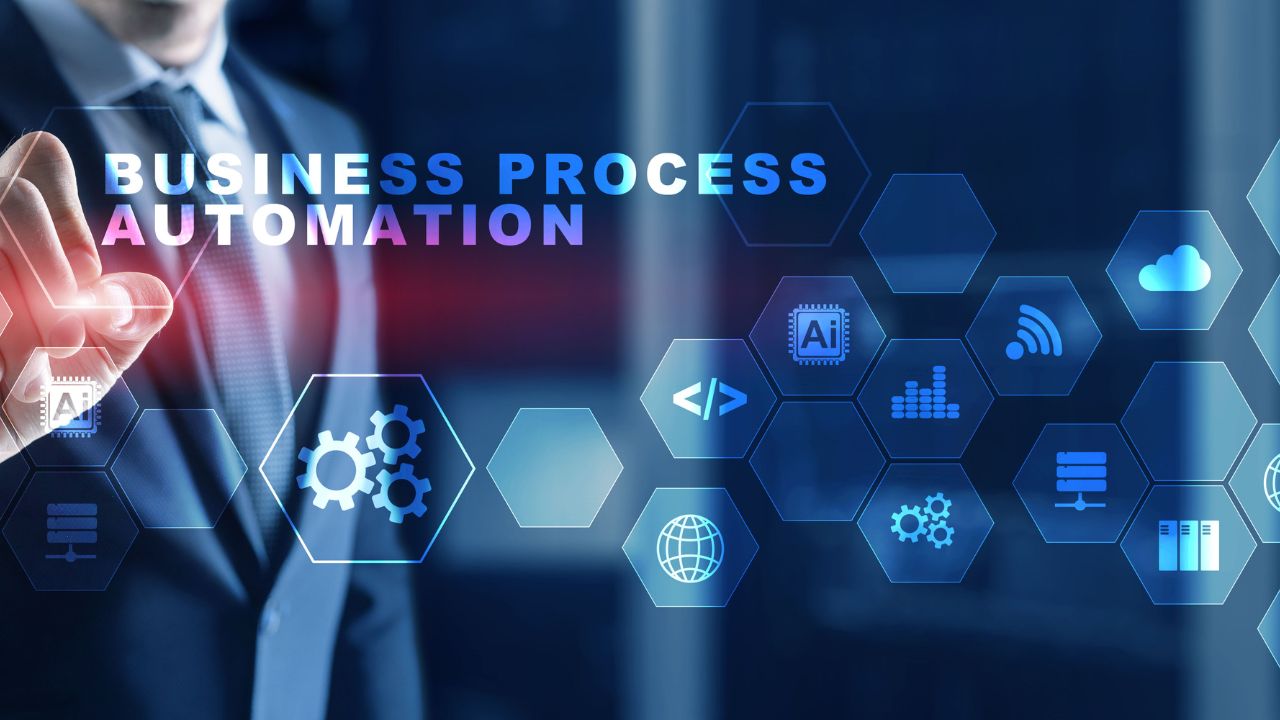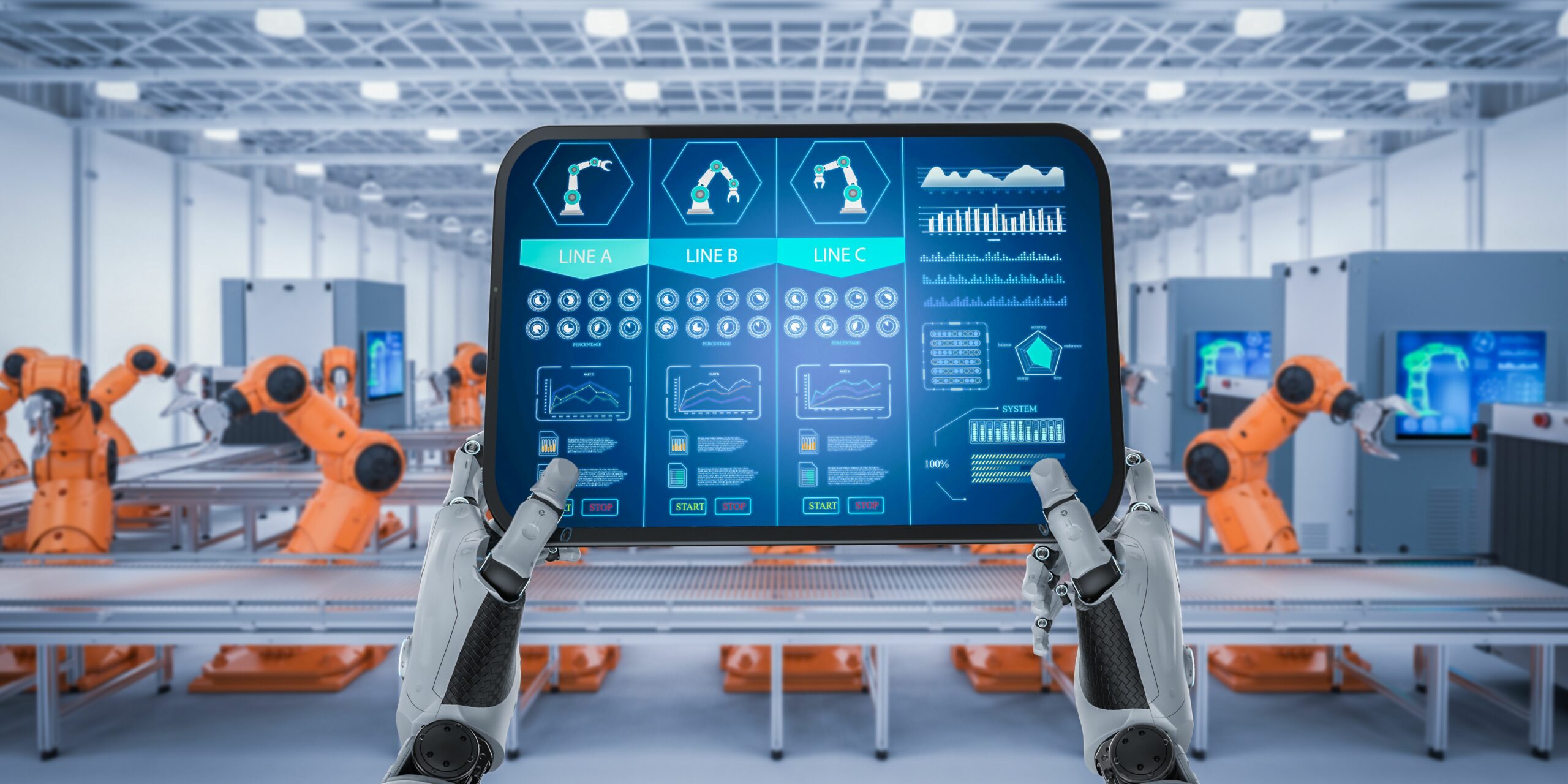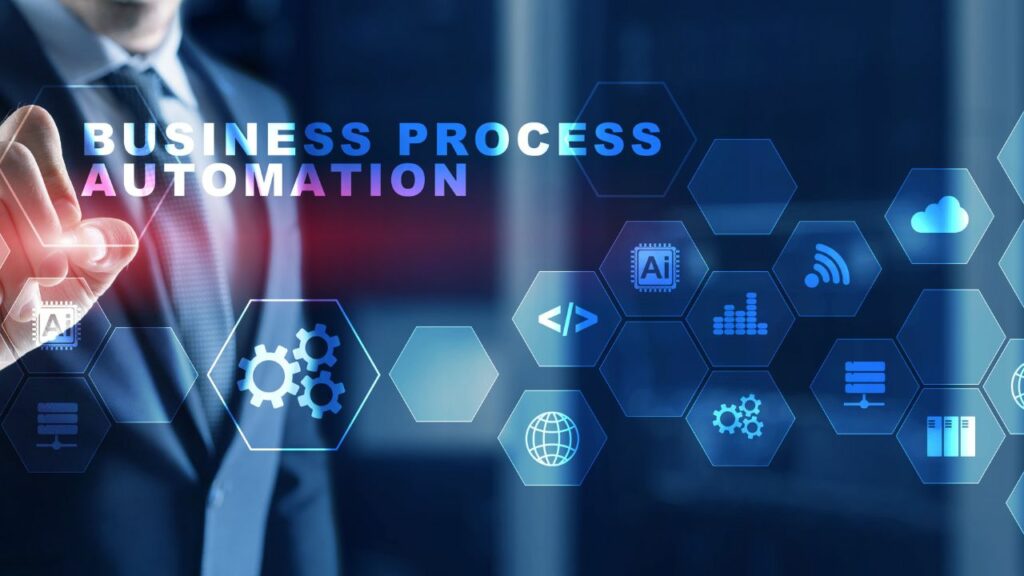 Business process automation (BPA) has become a key strategy for organizations seeking to improve efficiency, reduce costs and enhance productivity. With the emergence of artificial intelligence (AI), businesses are now able to take BPA to the next level, enabling machines to perform complex tasks and make intelligent decisions with minimal human intervention. In this article, explore AI in business process automation.
Business process automation (BPA) has become a key strategy for organizations seeking to improve efficiency, reduce costs and enhance productivity. With the emergence of artificial intelligence (AI), businesses are now able to take BPA to the next level, enabling machines to perform complex tasks and make intelligent decisions with minimal human intervention. In this article, explore AI in business process automation.
How artificial intelligence can improve your business processes
There are many ways a business can rise to success and fame. However, it is arguably more difficult to maintain this momentum than to kickstart it. Businesses need to constantly perform repetitive processes in order to maintain the quality of their services or products. However, this can be tedious for business workers who might prefer to innovate and create new ideas. This is also costly for business owners. However, there are new technologies and solutions being developed every day to assist in automating all kinds of processes.
Examples of AI in Business Processes
There are many ways we can apply artificial intelligence. There are some methods that are more widespread and versatile than other that are specially developed to meet the needs of certain industries. One popular application of artificial intelligence that is popular in the business process is the use of smart assistants. Think of voice-enabled machines such as Siri, Google, and Alexa. Voice assistants with AI capabilities can automate processes, offer customer service, and collect data. In business, these devices can help increase operational efficiency while offering clients individualized support.
When it comes to analyzing feedback from customers or users of a business’s services, the process can be sped up by using sentimental analysis AI. To understand how people feel about goods and services, AI-powered sentiment analysis is used to examine social media postings and customer reviews. This can help businesses better understand customer needs and improve their products based on them.
There are also other applications of AI that is incredibly valuable in making businesses function better. These include customer service chatbots, email automation software, smart search engines, and more. However, we’ll be delving into three specific fields of artificial intelligence that can help us distinguish what technological tools businesses usually use.
You might also like: The Importance of Natural Language Processing in Artificial Intelligence
AI for Business Process Automation
Every firm has various tedious and repetitive jobs. This is why more and more companies are looking for technologies that can save both time and money by automating these jobs. This branch of artificial intelligence, where different business tasks are done automatically by computer software, is called robotic process automation (RPA).
AI-powered RPA can learn from human behavior and make decisions based on the data it collects, making it more efficient and accurate. In finance firms and businesses, this artificial intelligence software are capable of automating financial reports and processing invoices. Similarly, in the healthcare industry, RPA is used to automate different parts of keeping patients’ medical records properly filed and updated. RPA is also popular in other fields such as human resources to even government agencies to make their activity more efficient.
AI for Cognitive Insight
Another branch of artificial intelligence that is popular in businesses is cognitive insight. This kind of machine learning is responsible for understanding how individuals think, reason, and make decisions. It is much more different from other kinds of automation AI tools and technology because it emphasizes greater on analyzing vast quantities of data and acquiring insights into the human brain and behavior.
An example of how cognitive insight tools may be helpful is in marketing businesses. Machine learning tools that are developed for cognitive insight can examine consumer behavior and preferences to find trends and patterns. This can help marketers in creating successful marketing campaigns. Bigger companies like Amazon utilize machine learning algorithms to analyze large amounts of data from their users to determine what their next purchase might be.
AI for Cognitive Engagement
The final branch of AI that is popular in business processes is cognitive engagement. This application of machine learning mixes together elements of cognitive insight AI with human communication and interaction. It aims to simplify consumer interactions, data collecting, and communication. Cognitive engagement also functions in a way that improves how people interact with technology by employing machine learning and natural language processing.
A famous example of an application of cognitive engagement is the use of chatbots. These chatbots aid businesses in providing better customer service by speedily responding to customers’ questions and to their feedback. This is possible because it focuses on understanding and reacting to human emotions, preferences, and actions.
Benefits of Using AI for Business Process Management
Artificial intelligence is a great tool for businesses to use because it provides more avenues for them to efficiently process data with less error and labor. AI algorithms are so exact and reliable, which makes them reliable tools for reducing mistakes and providing higher-quality results. This is crucial in fields like healthcare and finance, where even little mistakes can have negative effects.
A lot of companies are eager to adopt AI into their business workflows because it also contributes to increased productivity, reduced operating costs, and improved experiences all around.When it comes to motivating employees and business owners, AI is especially desirable because of its ability to simplify their processes and increase their bottom line.
Here are more of the specific ways that businesses can benefit in incorporating AI into their business process management:
1. Predictive Analysis

Predictive analysis is a kind of artificial intelligence that employs machine learning algorithms to evaluate past data and forecast potential future trends. It involves a multi-step process that includes data gathering, data cleaning, data modeling, and data testing. Machine learning techniques are then used to find patterns and trends in the data after the data has been prepared. Then, depending on the past data, these algorithms may be utilized to build predictive models that can foretell future events.
The largest benefit of predictive analysis comes from the fact that humans have a hard time distinguishing the intricate structures required to recognize these patterns. AI can assist in spotting fraudulent actions in online user behaviors. It can also assist in effectively categorizing clients depending on their behavior and demographics, which can boost the effectiveness of one’s next marketing initiatives.
2. Redundant Activity Automation

Redundant or repetitive actions can be demoralizing for workers to do on their own, for days on end, without using any tools to ease the process. This is another major way that artificial intelligence can be impactful in improving businesses. Redundant activity automation is the process of removing or streamlining low-value, repetitive processes from a business process. Businesses can save time and eliminate errors by automating these operations, which will ultimately increase their overall productivity and efficiency.
Redundant activity automation can be helpful in a variety of industries. For example in marketing, an automated system can be used to generate targeted leads based on specific criteria. Or send out personalized emails to customers based on their past purchase history. In customer service, it can be used to route customer inquiries to the appropriate department or agent based on the nature of the inquiry.
3. Customer Experience Improvements

Being able to improve based on customer feedback is a universal rule of thumb that all businesses are expected to follow because it is key to succeeding. AI-powered business process management systems are especially powerful in accomplishing this task. This is because it analyzes data to get precise insights into client behavior and spot emerging patterns.
Machine learning tools that are developed to accomplish this task can be used to personalize interactions, improve response times, and provide more accurate and relevant information to customers. Examples of these kinds of applications are chatbots, virtual assistants, and even voice recognition software. Using these tools can contribute to improved customer experience.
4. Cost-Effective

It can be quite difficult to effectively pinpoint the weaknesses in a business due to human bias or lack of knowledge. It can also be costly to fail in addressing these weaknesses because they can easily hurt a business. Investing in artificial intelligence seems daunting and expensive at first, but when implemented effectively, it can provide significant benefits that outweigh the costs.
5. Better Decision-Making Capabilities

Finally, machine learning software can help businesses in pursuing informed business plans and choices. Doing this require in-depth data analyses, but it can require a lot of work and time to do. Managers and company owners can make smarter decisions by utilizing cutting-edge machine learning algorithms and neural networks.
How AI Can Optimize Business Processes
There are other ways that AI assists in helping business leaders run their companies more smoothly and efficiently:
Optimizing sales and marketing with AI
Machine learning makes it possible for businesses to engage with their customers even better. Sales can be better analyzed and streamlined with automation tools. On the other hand, cognitive engagement and insight software can help in finding the best avenues for how businesses can market their products. These tasks can be done through chatbots, analytic tools, and more.
Content generation with AI
Content generation is one of the most popular uses for artificial intelligence today. They can generate written or multimedia content such as articles, videos, images, and more. These are important building blocks in advertising a business online.
AI in Manufacturing
Though the manufacturing industry focuses on innovative technology, such as robots and computers, artificial intelligence isn’t developed in this field. Adopting machine learning software in different manufacturing processes can improve the flow of human activity much more.
AI algorithms can help predict and monitor the status of different machinery to determine when it will need repairs. There are also algorithms that can analyze data from production lines or even suppliers to ensure that all manufactured goods are optimal.
AI in Recruitment
Recruitment often refers to a process in human resources or employment. This kind of process can be greatly repetitive and tiring for recruiters to do every day. Artificial intelligence tools can perform data analyses on all job applications to speed up the process. It can aid in identifying and eliminating undesirable applicants. It can reduce decision-making time and cost while also eliminating subjectivity.
AI in Security
Security is an industry that can be applied in many other institutions. All kinds of security technology and efforts such as CCTV cameras, password-protected locks and systems, and precautionary systems to prevent fraud. Deep learning algorithms have the ability to strengthen these security systems.
AI algorithms can be trained and used to spot hacker or fraud attempts. There are also other applications such as malware detection for computers, and user authentication.
You might also like: A Beginner’s Guide to Deep Learning and Neural Networks
How can businesses use artificial intelligence to automate and streamline their processes?
There are many ways that businesses can utilize AI in process automation. Business processes can improve when we use machine learning software to automate tasks such as data entry or answering customer queries. We can also train machine learning software to maintain different kinds of equipment or machinery.
Which business process could be automated using artificial intelligence?
Artificial intelligence is essentially ready to automate any kind of business process. This kind of application can be possible if the sequence of operations in the process is arranged in a way that an AI algorithm can process and automate.
What sized companies benefit from robotic process automation (RPA)?
Both small and large companies can benefit from employing RPA in their business processes. However, it still depends on what kind of industry a business is functioning from. As an example, engineering companies can use RPA to fix a temporary problem while their employees figure out a better solution to successfully solve it.
Does business process automation worth the cost? Did you have experience with automating business?
Sadly, you can’t decide whether anything is worthwhile until you’ve tried it. It is challenging to ensure that your automation will provide all the advantages you anticipate at the beginning of any project. This is why it is important to properly assess one’s needs, budget, and the extensive uses of RPA in a business before using it.
You might also like: The Rise of Intelligent Automation: The Future of Work with AI





